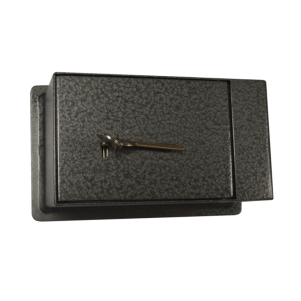How Do I Maintain And Care For My Safe?
 There are various reasons why we choose to have a safe, in terms of the type of belongings we wish to protect and their value. This will differ quite significantly between a family home and a commercial business, for example, but the common denominator is that we need the safe to be 100% reliable all of the time. We want this guarantee for essential security reasons, for our own wellbeing and peace of mind, and for insurance purposes also.
There are various reasons why we choose to have a safe, in terms of the type of belongings we wish to protect and their value. This will differ quite significantly between a family home and a commercial business, for example, but the common denominator is that we need the safe to be 100% reliable all of the time. We want this guarantee for essential security reasons, for our own wellbeing and peace of mind, and for insurance purposes also.
So choosing the right type of safe in the first place is an important decision, but how we subsequently care for and look after the safe thereafter is also crucial. This includes storage and location as well as general maintenance, but the key is that the safe retains its structural qualities and the inherent features that made it a good and reliable safe when you first bought it. Anything that compromises this is a potential problem, and could also affect the validity of any insurance policy, so let’s look at how you should care for and maintain your safe:
Clean
We don’t tend to interact with a safe on a regular basis, so it can be prone to a build-up of dust and debris, particularly if it is hidden away in a cupboard or under the floor. So it makes sense to periodically check it, both inside and out, and keep it clean so that nothing compromises its performance. Use a duster or damp cloth to clean it and don’t use any harsh or abrasive chemicals.
Test lock
While you don’t want thieves to gain access to your safe at any time, you do need to have access yourself, so make sure you test the locking mechanism periodically if you are not opening and closing the safe regularly. Mechanical locks can seize up over time and become difficult to operate, so lubricate the cylinder a little if necessary, but occasionally operating the lock to open and close the safe should be sufficient to maintain its operation. You can also check the locking bolts function. The locking system is the first line of defence for the safe, so it is essential that it works, and if you encounter any problems you may need a professional locksmith.
Inspect
A free-standing safe that is bolted to the floor or wall can occasionally get knocked or scratched, while a safe stored away can be subject to rust or corrosion, which could affect the security integrity. So a periodical check to inspect for signs of damage is important.
Batteries
Where a safe has an electronic lock it will be powered by batteries, so it is essential that you check these batteries are still working. A good safe will send you an alert if the batteries are reaching a critically low level, and if you receive this then you should replace the batteries, or recharge them, ASAP. If you don’t do this and the lock power dies, you could face a costly call-out charge.
Location
The location of your safe is usually dictated by its size and weight, and whether you need to bolt it to the floor or walls. Keeping a safe concealed or secured is essential, otherwise a would-be thief can simply pick it up and take it away, and whether they can then pick the lock or not is irrelevant, because you will never get the contents back either way. However, you do need to periodically review this storage location to check it is still suitable. Ideally, a safe needs cool and dry conditions to ensure the structure and contents are not compromised, so you should ensure that a storage location is dry and temperature-controlled, and there are no fire risks nearby. Although, even if you have a fireproof safe, the reliability of this feature can be affected if the safe is in contact with water.
Contents review
You should periodically review the contents of the safe to assess whether everything still needs storing in there. It is easy to exceed the weight limitations of a safe without realising, so can anything be removed? Maybe some documents have surpassed their retention period, or contracts have been completed and are no longer valid? Maybe some documents can now be stored digitally? Or some product specifications have been amended or are now obsolete? Excessive weight can impact on the structure of the safe, so be careful not to exceed recommended limits.
Professional
It is always advisable to have a professional safe specialist look at a safe to provide extra reassurance and to identify issues that you maybe wouldn’t be aware of. They can carry out the necessary checks to put your mind at ease. This may be a stipulation of your insurance company also.
Contact MB Direct for advice on safe care and maintenance
If you browse our full range of safes at MB Direct, you will see the variation in type and size and how care and maintenance is important in ensuring they are working correctly and providing the required security. If you have any questions about our range of safes and how to look after them contact our team at MB Direct today.